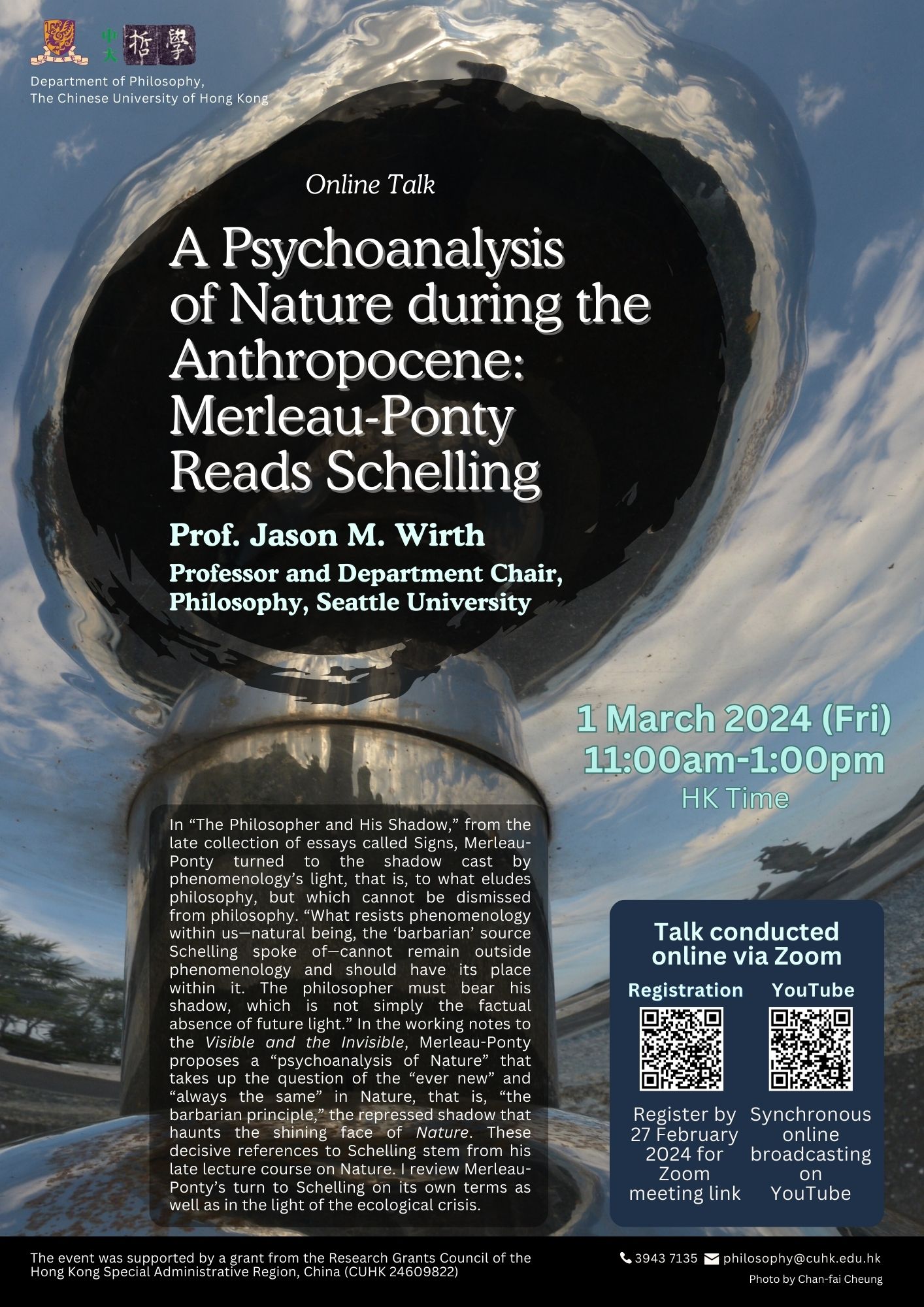A Psychoanalysis of Nature during the Anthropocene: Merleau-Ponty Reads Schelling (Online Talk)

Prof. Jason M. Wirth |
|
11:00am-1:00pm HK Time |
|
Online via Zoom |
Online
Register by 27 February 2024 for Zoom meeting link https://cloud.itsc.cuhk.edu.hk/webform/view.php?id=13683425
Synchronous online broadcasting on YouTube
Link: https://www.youtube.com/channel/UCkIjtv5MRWV5wHlFXpDy-AA
Enquiries:
Tel: 3943 7135
Email: philosophy@cuhk.edu.hk
Abstract:
In “The Philosopher and His Shadow,” from the late collection of essays called Signs, Merleau-Ponty turned to the shadow cast by phenomenology’s light, that is, to what eludes philosophy, but which cannot be dismissed from philosophy. “What resists phenomenology within us—natural being, the ‘barbarian’ source Schelling spoke of—cannot remain outside phenomenology and should have its place within it. The philosopher must bear his shadow, which is not simply the factual absence of future light.” In the working notes to the Visible and the Invisible, Merleau-Ponty proposes a “psychoanalysis of Nature” that takes up the question of the “ever new” and “always the same” in Nature, that is, “the barbarian principle,” the repressed shadow that haunts the shining face of Nature. These decisive references to Schelling stem from his late lecture course on Nature. I review Merleau-Ponty’s turn to Schelling on its own terms as well as in the light of the ecological crisis.
Delivered in English.
All are welcome.




